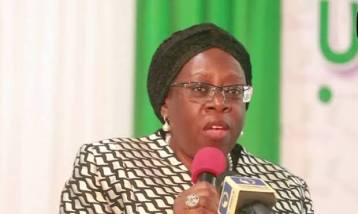***develops App for commuters, travelers
By Friday Idachaba.
Against the harsh economic realities occasioned by the Fuel Subsidy removal and the accompanying difficulties, a communication technology outfit, MyCoPilot Ltd, has developed an application to assuage challenges in the Transportation Sector of the country.

Mr Chizoba Jeff, Co-founder and Chief Executive Officer of the outfit who disclosed this on Monday at a press conference in Lokoja said the App was a novel initiative to drive Nigeria towards a better transportation future.
He described the MyCoPilot Ride-Sharing App which currently has over 3,000 users as a “go-to platform” for commuters seeking safe and cost-effective travel options.
Jeff explained that the App, deploying its Artificial intelligence technology, ingeniously connects private car owners headed in the same direction with verified passengers in need of transportation.
“By simply entering their destinations and dates, users are swiftly matched with nearby car owners who have available seats and are headed in the same direction.
“MyCoPilot’s smart algorithms optimize routes and pricing, ensuring passengers benefit from substantial cost saving compared to all other road transport options and in the process help Nigerians cushion the effect of the current corrosive economic climes.
“It no longer makes sense for you to have a car in Nigeria today and not consider using the MyCoPilot app for some of your movements if not all”, he said.
According to him, in the dynamic world of technology, innovations have continued to redefine the way we live and move, saying that in the nation’s current economic situation, there is need for all hands to be on deck to revolutionize the road travel system.
“In Nigeria, a nation with bustling cities and vibrant communities, battling economic wars, transportation has emerged as a pressing challenge for many citizens.
“However, adversity always seems to produce greater innovation and in the Nigerian transport sector, a remarkable solution has surfaced, revolutionizing road travel”, he said.
Jeff also added that MyCoPilot Ltd is offering scholarships to at least, two persons per family of any car owner on the app after meeting a certain number of trips.
He said that the company would also offer health insurance for the users in view of the current economic conditions which have adversely affected the spending power of Nigerians, especially drivers and families.
On safety of commuters and vehicle owners, the App developers said safety remained a non-negotiable priority for MyCoPilot adding that the app had implemented robust security measures.
He noted that as part of the operational guidelines, it must be ensured that all users undergo thorough verification using government-issued IDs and facial recognition technology.
Jeff explained that address verifications, tracking of journeys end-to-end as well as the incorporated panic button to be used in case of any emergency was another layer of security.
“The MyCoPilot App is available on Appstore, Playstore and can be accessed through their official website at www.mycopilot.ng or direct download from https://mycopilot.ng/download”, he noted. (Ends)



